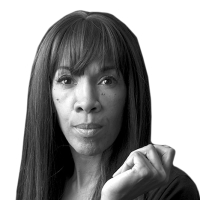Say the words hip-hop, and several images immediately come to mind: Luxury cars, fine champagne, expensive bling, bright lights, big stages. The U.S. Capitol Building, corporate boardrooms and international parliaments, however, might not be in that initial lineup. But anyone worth his or her swag today can see a distinct evolution in the genre into a new, powerful and international presence, and it is taking the global cultural lead in a millennium defined by disruption and innovation.
Perhaps the least expected arena for the genre is direct political action. While “fight the power” has long been the default stance of the music, lately artists are moving beyond simple rhetoric to organized execution. Look no further than the unrest in Ferguson, Mo., following the shooting death of Michael Brown to see recording artists like Nelly, Common, Killer Mike, Jeezy, and J Cole lending their voices, time and influence to encourage order in the area and/or support for the Brown family.
In addition to public shows of solidarity with the citizens of Ferguson, recording artists are also spotlighting various socio-political causes in which they believe. Respected actor and rapper Yasiin Bey, formerly known as Mos Def, actually underwent a force-feeding procedure to call attention to the hunger-striking detainees at Guantánamo Bay. The procedure was captured on-camera and released by the human rights organization, Reprieve. The graphic video went viral within just hours.
“Hip-hop's involvement in politics isn't a new thing,” the inimitable Snoop Dogg, now known as Snoop Lion, told Daily Beast. “But I believe that a lot of us entertainers are now actually getting out there more and more in politics and doing more because we want to really see change in our nation.”
Recently, he’s been hard at work over the last several months demanding that politicians in Washington reconsider gun-control laws. He said he recently partnered with the League of Young Voters for a campaign to help stop gun violence.
“And I’m gonna keep pushing until there’s change,” he added.
Rep. Hakeem Jeffries, D-NY, adds. “From the very beginning hip-hop lyrics have often been infused with social justice issues from KRS-One and Biggie Smalls rapped about what they saw going on in the streets,” he told the Daily Beast from his DC event, “Hip-hop on the Hill,” which doubled as a fundraiser. “It’s just that now, hip-hop is beginning to take its seat at the table across the board and leverage its influence.”
But just what is driving such an exciting, burgeoning expansion of hip-hop? It’s the larger culture’s realization that hip-hop, which grew out of urban street culture and the African-American experience, has grown far beyond that and now in many ways has become global pop culture and, thus, the arbiter of overall social influence. It’s become the counter-culture to the rock-based pop culture of the Baby Boomers.
Remember, the haircut your son had to have not long ago, or the self-acceptance and gay pride anthems your young daughter accepted, or the tune you just can’t get out of your head? Even if you don’t know Ice-T from iced tea, hip-hop artists and producers are influencing current musical and cultural trends from around the world. Justin Bieber, Lady Gaga and new kid on the block, Iggy Azalea were discovered by Akon, Usher, and T.I., respectively. And these new aficionados of global cool are poised to widen their impact.
“For the first time in history, we see that the decision-makers in large companies and government institutions have grown up with hip-hop and so, understand, respect and enable each other,” said Jon Jackson, Executive Creative Director of the award-winning global digital agency Huge. “Hip-hop has become the counter-culture to rock 'n' roll, and the people who have grown up with it recognize its strength.”
And the trend is global. The European Union might be home to such respected treasures as the Louvre and powerful corporations like Mercedes-Benz, but European Parliament politicians tried using hip-hop when it came time to woo young voters.
Even the Middle East has proved no match in resisting hip-hop’s power. Akshay Chowdhary, Director of Light and Shadow Enterprises a leading production and event management company in Muscat, Oman, said the company had successfully brought hip-hop artists into the region for shows.
“Oman’s Majesty Sultan Qaboos Bin Said has promoted culture, art and music, which has given the youth the chance to choose their own tastes,” he said. “Hip-hop is one of the preferred genres this part of the world! While we may not have the American artists here directly, the lifestyle and imaging is inspiring entrepreneurship around the culture in interesting, new ways from art sales to social start-ups around the genre.”
Sure, it still has more than its share of bad boy mug shots and bad girl butt cheeks, but in an era where the opinion of one’s own peers is becoming more respected than any authority, hip-hop seems a trusted framework for seeing the world. It has burrowed into the very under-threads of culture.
“As I had to point out [during my tenure], by ‘Hip-hop Republican’ I didn’t mean dressing Senator Mitch McConnell in some Pelle Pelle throwback jacket,” former Republican National Chairman Michael Steele told the Daily Beast. “Rather, I’m talking about the fact that hip-hop has the ability to bring his or her voice to virtually anything, anywhere in order to influence, educate, and inform.”
“Hip-hop is … becoming the new standard,” he continued. “And in politics and in business, that is power you have to respect if you want to be a part of conversation in the new era.”






